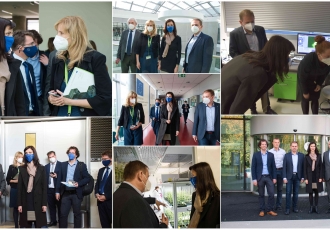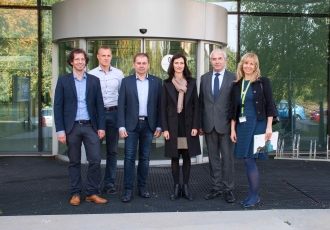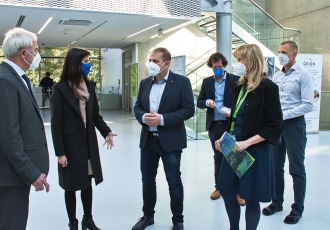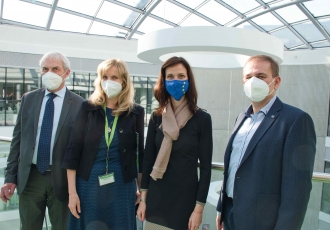11. Oct. 2021
Mariya Gabriel, the EU Commissioner for Innovation, Research, Culture, Education and Youth, visited CEITEC – Central European Institute of Technology during her official visit to Brno. One of the Commissioner’s responsibilities is to ensure that investment flows into disruptive research and breakthrough innovations and Brno provided her with solid evidence that well-invested European funds can transform entire regions. CEITEC was founded 10 years ago, inspired by an ambitious dream to establish a scientific multidisciplinary centre of excellence, which would connect the best scientific teams from six major Brno-based universities and research institutions. Once only a dream, CEITEC gradually developed itself into a successful science centre with a steadily growing international reputation. All this would not be possible without cleverly designed Regional Innovation Strategy, committed team of people, and funding provided by the European Commission.
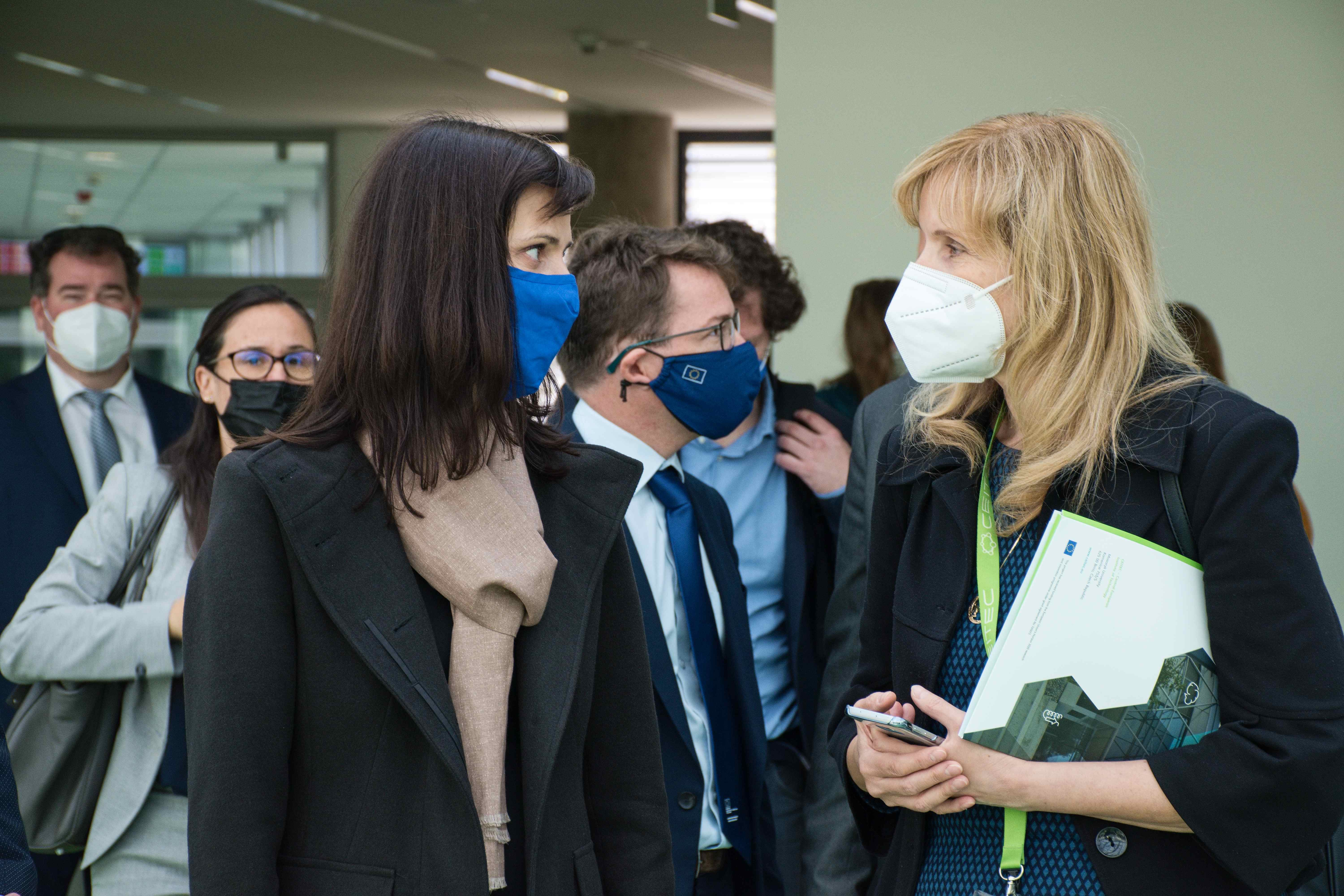
Representatives of CEITEC´s management showed the Commissioner the state-of-the-art facilities located at CEITEC Masaryk University. CEITEC provides open access to 12 shared laboratories that are equipped with cutting-edge technology. High-end instrumentation of these core facilities is accessible not only to CEITEC researchers, but also to external users from the academic and private sectors via the ESFRI networks. Mariya Gabriel visited the Cryo Electron Microscopy and Tomography Core Facility, that enables scientists to study biological structures, such as viruses or bacteria, up to the atomic level.
CEITEC´s competitive advantage is its strategic location. The research centre is based in Brno, which is often called the “electron microscopy valley”. This is because the Brno region is responsible for more than one third of world´s production of electron microscopes. This technology became recently very popular also due to its suitability to study structure of viruses, including the coronavirus.
The Commissioner was keen to learn more about the local innovation ecosystem and start-ups. Jan Neuman, a CEO of NenoVision, a spin-off company of CEITEC Brno University of Technology shared with the Commissioner his experience with the successful spin-off operating in the field of microscopy. The company developed a unique technology - LiteScope™ - that allows to combine a two-dimensional electron microscopy imaging with a three-dimensional atomic force microscopy imaging, and enables therefore advantages of both commonly used microscopy techniques. “CEITEC Brno University of Technology performs excellent research in materials science, micro- and nanotechnology exploiting a unique CEITEC Nano facility at the CEITEC BUT site, possessing technologies not typically found in academia. It is not a surprise, that Jan Neuman, originally a junior researcher at the CEITEC BUT and a PhD student, decided with another two doctoral students to resume their work on a new atomic force microscope they’d studied to bring it into the commercial sphere. This can substantially contribute to building a bridge between microscopy approaches in life and materials sciences,“ said Radimír Vrba, Director of CEITEC BUT. “The recent trends of combining microscopy methods, and especially the technology of correlative microscopy, provide an enormous potential for breakthrough discoveries with the impact in biology, human health, agriculture as well as material science in the future”, added Karel Říha, Deputy Director for Research of CEITEC Masaryk University.
The Commissioner appreciated CEITEC´s activities which are aimed at closing the innovation divide in Europe. The Coordinator of Alliance4Life introduced to the Commissioner recommendations in the field of WIDENING and Strengthening the European Research Area. CEITEC MU is a member of EU-LIFE, leads the Alliance4Life and serves as a bridge between life science research institutions based in the West and the East, by transferring good practices in research and innovation to the less developed regions of the Central and Eastern Europe. “Europe needs such a joint effort in tackling the persisting disparities and institutional culture including gender equality and professional research support services are important part of the national reforms. I am convinced that there is a lot of talent in Central and Eastern Europe, which needs to be nurtured”, expressed Commissioner Gabriel her support.
The Commissioner visited also the unique Plant Science Facility equipped with sophisticated plant phenotyping instruments, that are also being produced locally. The Brno based company Photon Systems Instruments (PSI) is a global producer of scientific equipment used for plant science and biotechnology. PSI products are being used at prestigious universities and research institutes around the world, and even by the NASA astronauts in the space. Plant science research is of paramount global importance due to the growing population and ever-increasing soil erosion.
"I'm glad to see excellent universities and research institutions joining forces to collaborate on crucial areas for the future of Europe. Your scientific expertise and innovation capacity will help Europe to tackle our health, climate and digital challenges and will build bridges between academia, research and industry, " concluded Commissioner Gabriel her visit at CEITEC.


 Share
Share
